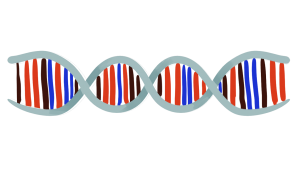Gene editing is not ethical and shouldn’t be used
April 8, 2019
As biomedical engineering and technology become more prominent within society, the idea of changing the very DNA that forms the basis for all life is something much more attainable than ever before. Although gene editing technology can potentially prevent genetic diseases, it also raises ethical questions about editing DNA for non-health related reasons.
After all, since this technology plays with genetics, a child’s attractiveness and athleticism are all fair game for the parent to modify. Even for something as imperative as intelligence, genetics “account for about half of all differences in intelligence among people,” according to Scientific American. While at face value these seem to be positive modifications, enabling people to change these once predetermined traits exacerbates society’s view on perfection and economic inequality all while not guaranteeing the patient’s safety.
As a whole, society has a narrow and unforgiving outlook on what is considered to be desirable. Spread widely across the media, certain types of physical appearances are celebrated and desired more than others. When we read and think about success, traits of high intelligence and athleticism are hard to miss. If people are presented with the opportunity to make their future child better conform to society’s picture of desirability and/or have a greater possibility for success, who wouldn’t take it? But, this is the heart of the problem. Once people start genetically modifying babies and begin viewing once predetermined traits to be attainable through materialist means, we will feed into society’s already strict views on desirability, allowing it to grow much more narrow.
Diversity will no longer be seen as something to be celebrated and might even decrease. On a genetic level, less gene diversity could harm humanity’s ability to survive during great disasters and eventually adapt to new environmental conditions over generations, according to Lumen Learning. Disability will be shunned even more and regarded as something trivial and “fixable.”
The beauty of not being able to achieve perfection according to society’s standards is that one learns acceptance and feels motivated to test the boundaries of what is desirable. We learn that we don’t need to be seen as perfect to live life the way we wanted, that perseverance and hard work triumph over the traits we were born with. Being imperfect is the exact gift that allows us to understand how perfection is unattainable, and lets us appreciate the world through different lenses not governed by how society thinks we should be.
On the flip side, people will argue that genetic modification can save people and prevent genetic diseases. However, with current technology, the cost of these procedures is extremely high and unrealistic. Take CRISPR, a new and powerful gene editing tool, as an example. Recently, a man in China claimed that he had successfully created twins who were genetically modified using CRISPR. But, the cost for CRISPR treatment right now sits at around $500,000 to $1.5 million, according to Independent.
Compared to the median annual income for Americans sitting at around 60,000 dollars, according to the US Census Bureau, it becomes quite clear that this method of preventing or fixing genetic diseases is out of the question for many people living in the United States.
Due to its high costs, genetic modification technology can even exacerbate the current wealth inequality between the nation’s top one percent and everyone else. For people who are currently in poverty, not only are their children not receiving quality education, but they will now have to compete with genetically modified humans whose intelligence or athleticism could have been boosted artificially. For celebrities whose appearances can sometimes determine whether or not they can have lasting fame, people who have been genetically modified to be more attractive will have an advantage. Even for the middle class, whose income ranges from $26,000 to $78,000, according to CNBC, hundred thousands to million dollar procedures is not affordable.
Therefore, the technology that is supposed to help the people is actually something that only a select few can benefit from. From the cost perspective alone, before anyone is able to praise the effectiveness and helpfulness of genetic modification technology, engineers and scientists need to figure out ways to lower the costs for these treatments or else they are not helping society the way they are meant to.
Additionally, genetic modification technology is not safe to use. According to New Scientist, there is an increased risk for cancer for patients who have undergone CRISPR treatment. Therefore, even if the scientists can use genetic modification technology to help prevent diseases, it does not necessarily mean that in the future the patients wouldn’t be harmed or killed by the technology that was once supposed to help them.
Coupled with the issue relating its cost, genetic editing is just not a viable option for many people. Even when these problems are solved, there still remains the matter of how this technology feeds and perpetuates society’s relentless categorization of perfection and desirability. Before we celebrate the “bigger picture” of all the wonders of genetic manipulation can bring to society, we cannot forget about its harms and consequences.


